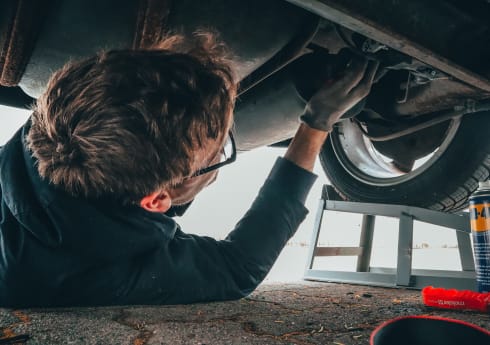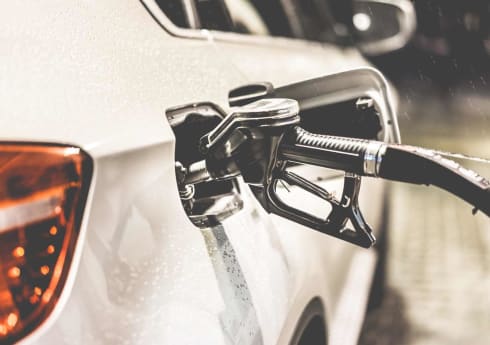What To Look For When Buying A Used Car
On this page, we tell you all the things to look for when buying a used car. The guide gives you a used car checklist that’s both simple to understand and comprehensive.
A simple checklist to help ensure you don’t get ripped off when you buy a used car
Used cars are cheaper than new ones. That’s a simple fact, one that you don’t need to use a money advice service or independent car review to confirm.
But the risks with buying a second-hand car are that you might buy a duff motor and get ripped off, making them a poor investment in the short, medium or long term.
You should always check a second-hand motor before buying it, but you need to go beyond just taking it for a test drive to see if the car pulls or steering wheel heaviness is an issue.
This guide lists all the essential details you need to look for when you’re buying a used motor, from documents to its green credentials.
We’ve also highlighted some other key ways you can manage costs if you’re buying a used car for your business.
Documents to review when carrying out a car history check
Documents are the first thing you must look for when buying a used car. The car paperwork tells you if it’s safe, if it’s the correct vehicle and if the person advertising it is allowed to sell it to you.
These are the key documents you need to review:
- V5C: vehicle log book.
- MOT certificate: environmental and road safety standards test.
- Full service history: car’s history that shows the work carried out on the vehicle.
Each piece of paperwork tells you something different about the car and there are some things you should look for in the documents. These are the things to consider:
V5C
- Does the owner have it? If they don’t then you won’t be able to tax the car.
- Is the person selling it listed as the registered keeper? If they aren’t then you should question if they’re able to sell it to you.
- Do the VIN (vehicle identification number), colour of the car and engine number match the V5C? If they don’t then you’re probably being sold a different vehicle.
- Is there a watermark on the document? If there isn’t then it may not be an official V5C.
- Are there any errors or spelling mistakes? If there are then the paperwork may have been altered.
MOT certificate
- Does the car have an up-to-date MOT? If it’s more than three years old then it must have one.
- Is it a genuine certificate? You can see if it is by visiting the government’s “Check the MOT history of a vehicle” web page.
Service and full car history
Is there a service history? If there is then you should check for any issues highlighted and establish if they’ve persisted or been corrected.
Mileage tells you how much life your car might have left
A car’s mileage can be a good indicator of how long it may have left.
This is particularly true when you compare diesel and petrol cars because the former can remain useful for many more miles than the latter — though you shouldn’t overlook the mileage on electric cars.
But it’s not only the number of miles on the clock that you need to look for. These are some of the other things to be aware of when checking the mileage of a used car:
- Is the mileage what you’d expect from a car of its age? Warning signs might flash in your mind if there are a lot fewer miles on the clock than you would expect to see.
- Is there any evidence that the odometer has been tampered with? Look for things like worn screws, as it could be that the mileage has been artificially reduced.
Is it in keeping with the MOT test number mileage? If it isn’t then it may be that someone has altered the mileage.
Damage warning signs you need to be aware of
Damage signs are any physical issues with the car that lead you to believe the seller is covering up a problem or indications that the car might require work to be done.
In theory, these signs should be simple to spot — so long as you know what you’re looking for. These are the warning sign you must be aware of:
- Mismatched colours
- Gaps in the panels
- Uneven paint finish
- Signs of spray paint
- Odd-looking welding
All of these signs indicate that cover up work of some description has been carried out on the car.
These signs range in seriousness, with an uneven paint finish potentially being more innocent than unusual welding. However, you shouldn’t ignore these red flags and we advise you to question them with the seller if you spot any of them.
Safety checks you need to make on any used car
Safety checks are the most important thing you need to carry out when buying a used car.
We’ve given these checks a designated section even though we’ve covered some of these elsewhere in this guide. For example, odd-looking welding (a sign of damage) is also an indication the car might be unsafe.
While we recommend you take note of any safety pointers we’ve raised elsewhere, these are some of the key checks to conduct to ensure the used car is safe:
- Are the seatbelts operational? Review them to see if there are any cuts or signs of fraying, as this may cause them to work ineffectively.
- What’s the condition of the tyres? if they have less than 3mm of tread then you’ll need to replace them soon.
- Are the airbags present and correct? See if the warning signs work as outlined in the car handbook.
- What’s the state of the spare wheel (if there is one)?: can it be used safely and does it have a corresponding sealant/inflator kit?
Are the lights and windscreen washers/wipers operational? Test them out to see if they work as you’d expect them to.
Engine problems that you need to look out for
When we talk about engine problems we mean a range of issues, from whether the clutch works to if the oil warning light goes off once you’ve started the engine.
Engine problems are a big issue to be aware of, as they could be either an operational concern or a safety hazard.
These are the main issues you should look out for when you’re assessing a used car:
- Does the car’s oil warning light go off when you start the engine? If it doesn’t then the level may be too low, which will lead to severe damage because the car’s metal parts will scrape against each other.
- Is the oil level correct? The level should of course be between the min and max readings on the dipstick.
- Are there any strange noises when you start the engine? This could indicate a number of issues that range in severity, such as leaks and overheating.
- Is the clutch fully and normally operational? See how high the bite mark is to establish how much life is left in the clutch.
- What’s the status of the catalytic converter? If your catalytic converter is faulty then your car will give off more emissions than it’s legally allowed to. This page provides some top tips for checking the status of a catalytic converter.
- Is there any gunk or sludge beneath the oil filler cap? This may indicate you have an oil leak or could be something more serious, like an issue with the head gasket.
Has the cambelt been replaced recently? If the cambelt looks old, it could break when you’re driving. The engine might seize up, which will lead the brakes and steering to fail
General issues you must remember when buying a used car
Alongside the easy to categorise checks you should make, there are some general issues you need to remember when purchasing a used car.
These are the things to look for:
- Working locks: remote control and central.
- Fully functioning windows: including sunroof.
- Noticeable signs of forced entry: different or damaged locks.
- Correct keys: do you have all the expected keys?
- Locking wheel nuts: are they fitted?
- Minor controls: air conditioning, heating, ventilation, etc.
Outstanding finance: is there finance to be settled on the car?
Green credentials tell you if the car is a wise investment
Green credentials are already important and will only become more so, as the government introduces new clean air zones (CAZ).
The greener your used cars credentials are the better it will cope with CAZ requirements and the wiser an investment it will be for you.
These are the most important green credentials to check the car for:
- Fuel consumption: the worse its fuel consumption efficiency the lower its green credentials will be.
- Clear air regulations: a good way of seeing if the used car is in keeping with clear air standards is to put the registration into a ULEZ (Ultra Low Emissions Zone) checker.
Engine size: this can be a sensible way of measuring the green credentials of older cars.
Why you should check the car’s vehicle identification number
A car’s vehicle identification number (VIN) is a unique, 17-digit number that is stamped onto the chassis of a car. Unlike a registration number, you can’t change the VIN. This means that any information recorded on public records to the VIN is certain to be accurate.
With this in mind, you should check the car’s VIN to confirm the identity of the vehicle and to establish if there are any issues with it.
You can check the information recorded against a car’s VIN by using a tool like this.
Should I purchase a used car privately?
You generally have the following two options for purchasing a used car:
- Buy from a used car dealer
- Buy from a private seller
Buying from a dealer means you’ll usually have a better range of options, as the seller will have a variety of second-hand vehicles for you to choose from.
Buying from a private seller means you’ll probably get a better picture of the state of the car, as they’ll likely have been driving it prior to offloading it.
There are upsides and downsides to both private and dealer purchases. The key is that you focus on the car you’re buying rather than the sales method it’s available through.
Fuel cards can help keep car running costs under control
Buying used cars is a good way for businesses to keep tight management of the company expenses, as the upfront costs are lower than purchasing a new vehicle.
Managing expenses is a vital part of any successful company and if vehicles are key to your business model then you can use fuel cards to keep running costs under control.
Fuel cards are like company credit cards for diesel and petrol. You and your drivers can buy the fuel you need immediately and then pay for it at a more convenient time (either weekly or monthly, depending on the card) for your business, one that ties in with your payment cycle.
The credit element of fuel cards is one way they help you keep fuel costs under control but it’s not the only example, particularly if you link the card with telematics software.
Combining fuel cards brings the following cost control benefits to your business:
- See every penny your business is spending on fuel with real-time reporting
- Spot any bad driving habits that lead to fuel wastage and/or car wear and tear
- Send your drivers on the most efficient journeys with online route planners
Compare the best fuel cards with iCompario
iCompario is the free online marketplace for business products and services, where managers and owners can research and rapidly compare fuel cards, vehicle tracking systems, insurance, telecoms and other essentials. The team follows up online queries by telephone so every site visitor finds their ideal, future-proof product at the best price possible.
Your company can save money by using iCompario to compare the best fuel cards, telematics devices, your fleet company’s own car insurance and a range of other key business expenses.
Read more

Driver Distractions: What are the most common distractions for UK motorists when on the move?


